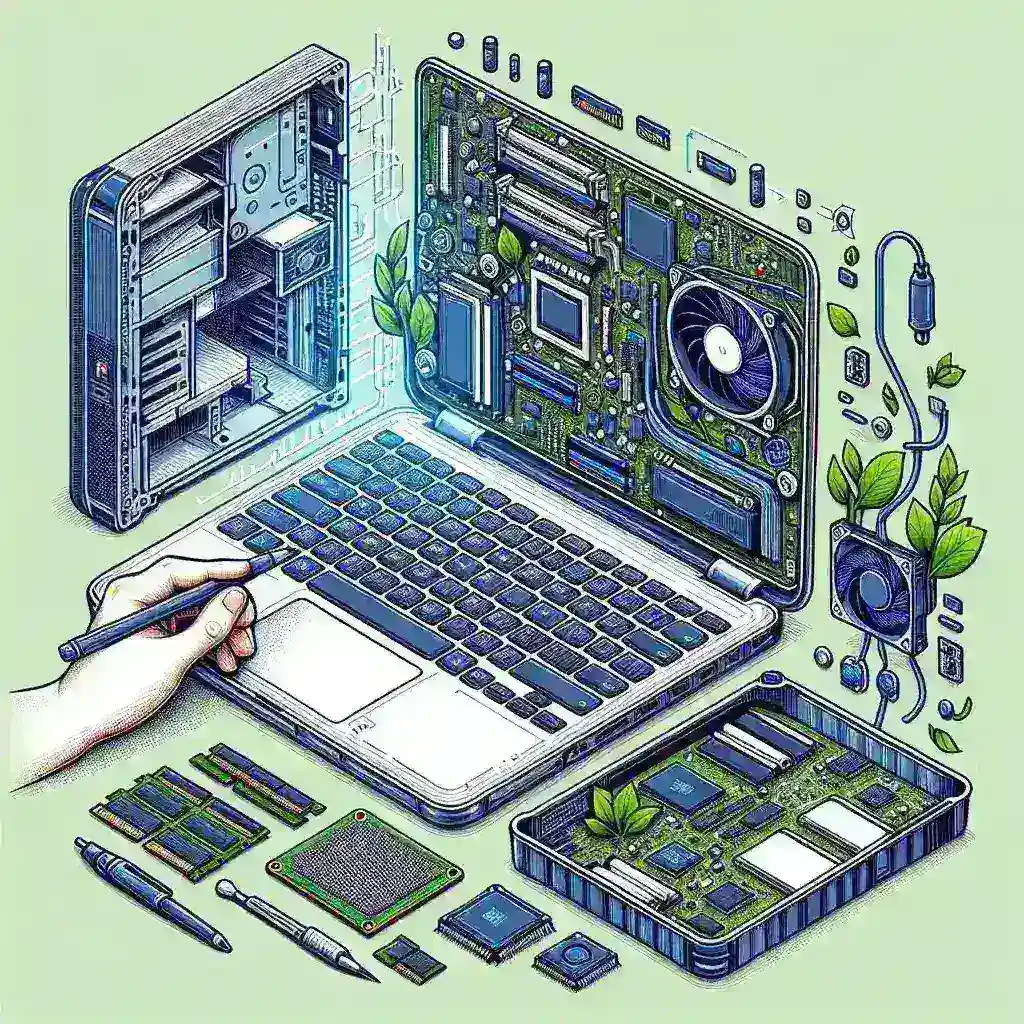Introduction
Sustainability has become one of the foremost concerns in today’s technology-driven world. As the demand for electronic devices continues to rise, so does the environmental impact of producing and disposing of these products. One company that is making significant strides in sustainable technology is Framework. This article explores how Framework laptops reuse old parts with desktop-style cases to promote sustainability and reduce electronic waste.
The Concept of Reusability in Technology
In an era dominated by rapid technological advancements, the concept of reusability has gained traction. Traditional laptop designs often limit the ability to replace or upgrade individual components, leading to premature device obsolescence. Framework has recognized this issue and embraced a different approach. By designing laptops that are modular, they enable users to replace and upgrade parts easily, extending the lifespan of their devices.
Understanding Modular Design
Framework laptops incorporate a modular design, allowing users to swap out components such as memory, storage, and even the motherboard. This design philosophy not only promotes sustainability but also empowers users with the freedom to customize their laptops according to their specific needs. The use of desktop-style cases further enhances this modularity, making it easier to access and upgrade parts.
Benefits of Modular Laptops
- Sustainability: By reusing old parts, Framework laptops reduce the demand for new components, thereby lowering the overall environmental impact.
- Cost-Effectiveness: Users can upgrade specific components instead of purchasing an entirely new laptop, leading to significant cost savings over time.
- Customization: Framework laptops can be tailored to suit individual preferences and requirements, allowing for a personalized computing experience.
- Longevity: The ability to replace outdated or malfunctioning parts means that users can keep their laptops for much longer than traditional models.
Historical Context of Electronic Waste
To understand the significance of Framework’s approach, it is essential to consider the historical context of electronic waste. According to the United Nations, around 50 million tons of electronic waste are generated globally each year. This staggering figure highlights the urgent need for sustainable practices within the tech industry. Traditional manufacturing processes contribute to this problem as devices are often designed for planned obsolescence.
The Rise of Circular Economy
The concept of a circular economy advocates for a system where products are designed for durability, repairability, and recyclability. Framework’s business model aligns perfectly with this concept. By allowing users to reuse old parts, they effectively reduce waste and promote a more sustainable approach to technology consumption.
How Framework Laptops Work
Overview of the Framework Laptop
The Framework laptop is designed with sustainability at its core. With a sleek desktop-style case, it allows for easy access to internal components. Users can simply open the laptop using a standard screwdriver and replace any outdated parts with ease.
Key Components
- Motherboard: The motherboard is designed to accommodate various chipsets, allowing users to upgrade their processing power as needed.
- Storage Options: Users can choose from multiple storage options, including SSDs, which can be easily swapped out.
- RAM Upgrades: The laptop supports different RAM configurations, making it easy for users to enhance their multitasking capabilities.
- Battery Replacement: Batteries can degrade over time, but Framework’s design allows for simple battery replacement, ensuring continuous performance.
Reusing Old Parts
One of the critical aspects of Framework’s approach is the ability to reuse old parts. This not only reduces the need for new materials but also minimizes the environmental footprint associated with manufacturing. Users can either source parts from their previous devices or purchase refurbished components, thus contributing to a more sustainable tech ecosystem.
Future Predictions for Sustainable Technology
The future of technology is undoubtedly leaning towards sustainability. As consumers become more aware of the environmental impact of their purchases, companies like Framework are paving the way for a new era of eco-conscious electronics. Experts predict that modular designs will become increasingly popular as consumers demand more sustainable options.
The Role of Education and Awareness
Raising awareness about the benefits of modular laptops and the importance of sustainability in technology is crucial. Educational initiatives that highlight the advantages of reusing old parts can empower consumers to make informed decisions. As more people recognize the significance of their choices, the demand for sustainable solutions will continue to grow.
Conclusion
Framework laptops are at the forefront of the sustainability movement in technology. By reusing old parts and adopting a modular design with desktop-style cases, they are redefining how we think about electronic devices. As consumers increasingly value sustainable practices, companies that prioritize reusability and repairability will undoubtedly thrive in the future. The journey towards a more sustainable tech landscape is just beginning, and Framework is leading the charge.













